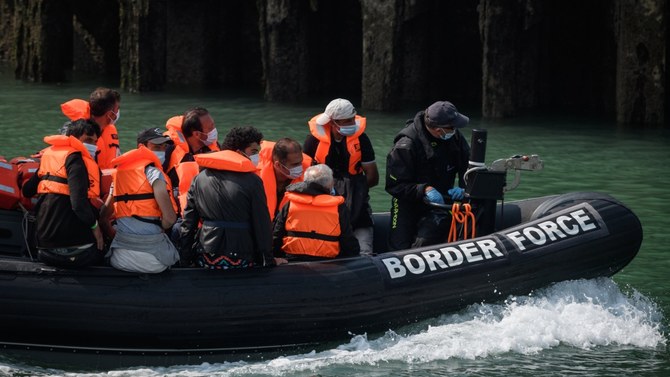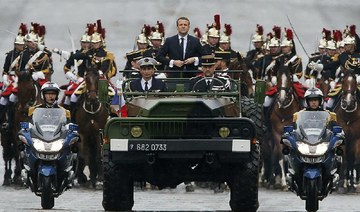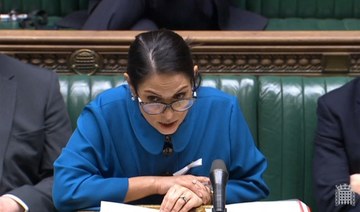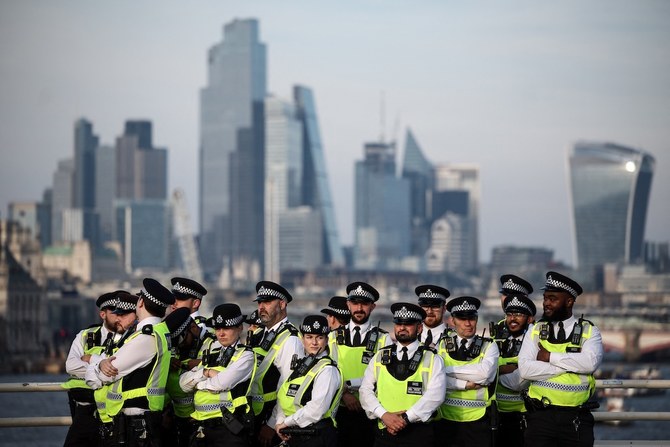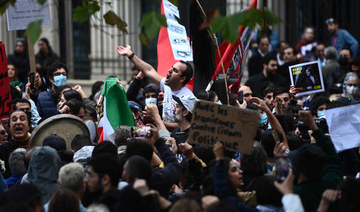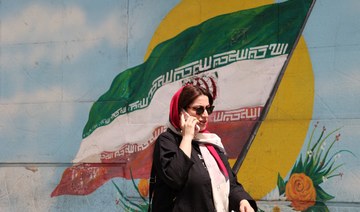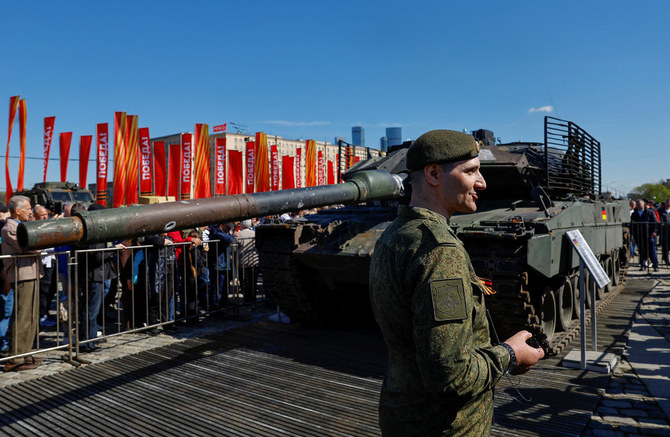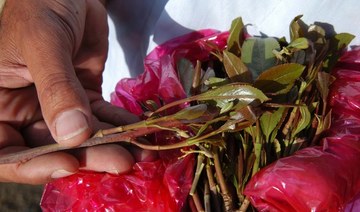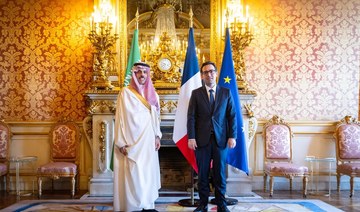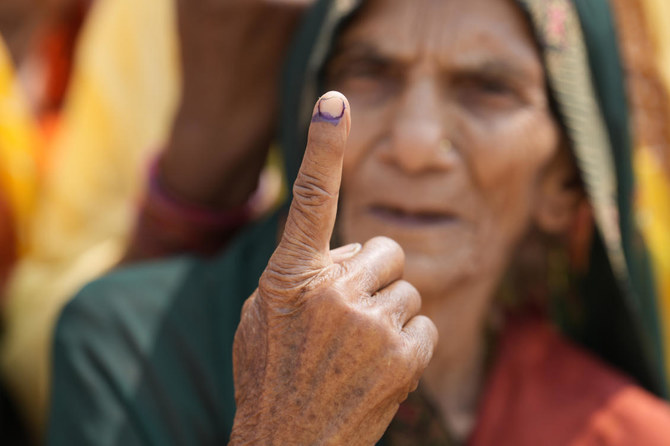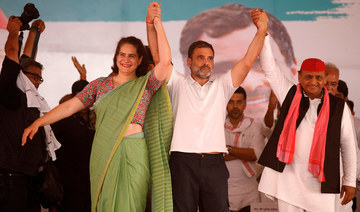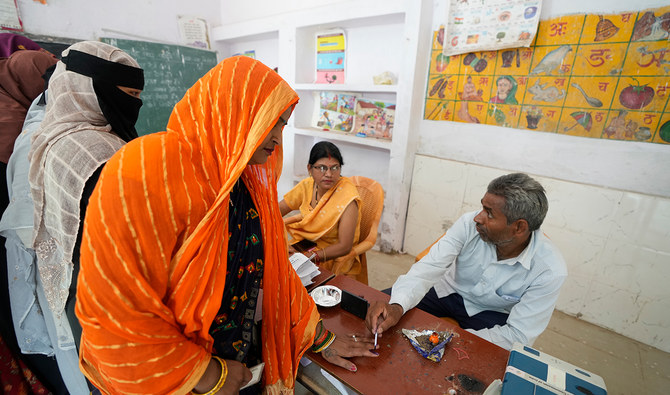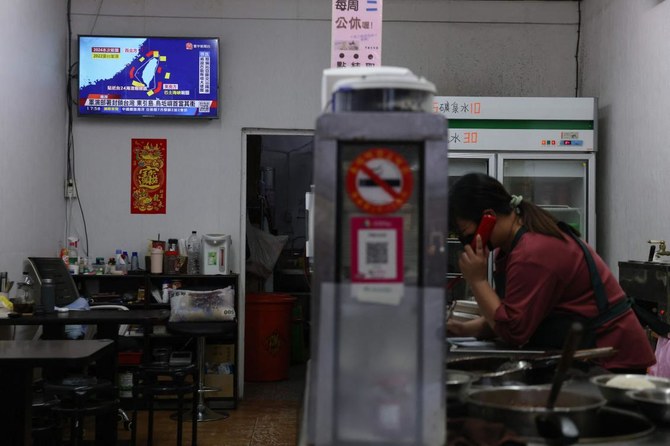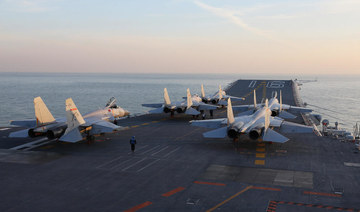LONDON: Migrants who cross the English Channel in boats are being held in inadequate processing centers upon arrival, UK Border Force staff have warned.
The Immigration Services Union, which represents immigration officers, said a temporary facility in Kent used to process asylum seekers is not fit for purpose, The Independent reported on Saturday.
Lucy Moreton, professional officer at the ISU, said: “You’ve got folk coming through who have gone through a very hard journey. They’re wet, they need to be warm, they need to be safeguarded. We’ve got no hot food or hot water — we can’t feed or wash them.”
Another facility, Tug Haven, which closed last month, was labeled “inadequate” by UK prison authorities last year.
The new facility in Kent, Western Jet Foil, a former hangar, is “made up of several containers and it is lined like an Eastern European train station, with wooden benches screwed to the floor,” said Moreton.
“If you need to lie down, you’ve got to lie on the floor between the benches, or lie in the benches themselves, which are narrow and backless.
“We don’t want to be keeping migrants in these conditions, but we just don’t have a choice. We can’t kick them out on the street.”
Bridget Chapman of the Kent Refugee Action Network said she is “increasingly concerned” about the “appalling and shameful” conditions migrants are subjected to upon arrival in Britain.
“After the Chief Inspector of Prisons damning report at the end of last year we should have seen significant and urgent improvements, but things are clearly deteriorating,” she added.
“The Home Office seems to think harsh conditions give the right optics, but actually those arriving need care, kindness and humanity.”
The Home Office is opening a permanent site for processing, Manston, which is designed to house arrivals for up to five days.
However, Moreton said the site is “not ready for use,” adding: “It’s so far off minimum health and safety requirements and has no fire extinguishers, first aid kits or defibrillators.
“The exits are not correctly signed because the building had been changed from its previous layout. There’s only one designated female toilet on site, no disabled toilet and only four male ones, and no provisions for disposal of sanitary products.”
To combat worsening conditions in UK migrant processing centers, the Home Office must “correctly resource” the Border Force, Moreton said.
“We need to identify the individuals who don’t have a right to be here and remove them, and if they do have a right to be here, regularize their status and let them get on with their lives. Don’t leave them in limbo for the six to 10 years that this can take now.”
A government spokesperson said: “We are in regular conversation with the ISU who have this week acknowledged that the Home Office is addressing their historic issues relating to the readiness of the Manston site. These comments do not reflect their current position.
“It is incorrect to say migrants are sleeping on the floor at Western Jet Foil. At Manston, we have sufficient toilets on site for the number of staff and have catering arrangements in place to provide food and water for staff, whilst additional kitchen facilities are installed.
“We will continue to bring individuals rescued from the Channel into the most appropriate port, including Dover.”



